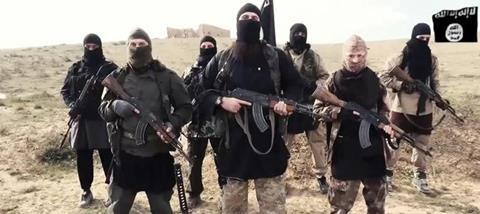
Over the past two years, the world has watched in horror as ISIS has executed over 10,000 men, women and children in Syria and Iraq. Even this shocking figure, released by the Syrian Observatory for Human Rights, doesn’t account for the thousands killed in suicide bombings or the slaughter of 5,000 Yazidis in Iraq’s Sinjar province.
As the months have rolled on, the extent of the atrocities has been made plain. ISIS has systematically targeted Christians and other religious minorities. There are reports of Christians being raped, beheaded and crucified for refusing to renounce their faith. Christian leaders such as Canon Andrew White have warned that Christianity is close to extinction in parts of the Middle East.
In recent months, campaigners have begun to call for ISIS’ actions against minorities in Iraq and Syria to be recognised by international bodies as ‘genocide’. The United Nations 1948 Convention on Genocide defines genocide as ‘acts committed with intent to destroy, in whole or in part, a national, ethnical, racial or religious group’.
Genocide is considered the ‘crime above all crimes’. But this is not merely an issue of semantics. If the criteria for acts of genocide under the UN Convention on Genocide are satisfied in relation to ISIS’ atrocities, all 127 signatories are under a legal obligation to both prevent further atrocities and punish the perpetrators. Under international law the international community would be obligated to take decisive action against ISIS to stop the genocide. This should lead to international tribunals, such as the International Criminal Court (ICC), prosecuting ISIS fighters. If the issue reached the ICC, then the world would be treating ISIS’ actions against Christians as seriously as it treated the Nazis’ actions against the Jews. In the words of Lord Alton, those responsible for these crimes must ‘have their Nuremberg moment’.
INTERNATIONAL EFFORTS
A worldwide campaign to put pressure on the UN Security Council to act has already seen considerable success.
In February, both the Council of Europe’s Parliamentary Assembly and the European Parliament voted to recognise ISIS’ killing of religious minorities as genocide. One month later the US Secretary of State, John Kerry, made the same announcement. Then in April, the legal battle came to Westminster as Christian MP Fiona Bruce (Con) brought a motion in the House of Commons condemning ISIS’ actions as genocide, and calling on the Government to refer the situation to the UN Security Council.
Two hundred and seventy-eight MPs voted unanimously to apply the label of ‘genocide’ to ISIS atrocities. Under normal circumstances, the outcome of that vote would have forced the UK government to raise the issue with the UN Security Council. However, at the time of writing, the government has chosen to ignore the will of Parliament and is yet to bring the issue before the Security Council.
Christian leaders such as Pope Francis have been unafraid to use the term ‘genocide’ and Prime Minister David Cameron has admitted there is a ‘very strong case’ for applying the label. In the run up to the MPs’ unanimous vote, Premier’s Stop the Genocide petition gathered 20,000 signatures calling on the UK government to act. Christian lawyers at ADF International have long been campaigning on the issue. According to a ComRes poll they commissioned, 69% of the British public want the UK government to raise the issue at the UN Security Council.
THE LONG ROAD TO JUSTICE
Legal Counsel for ADF International Laurence Wilkinson says the evidence for genocide is compelling. He calls the situation in Iraq and Syria ‘unbelievably heartbreaking… Christians who have been living there for thousands of years are being targeted and wiped out’.
The campaign has gathered steam in a relatively short period of time. Prior to January 2016, no international institution recognised ISIS’ crimes as genocide. Today there is a near-unanimous feeling to the contrary (the US administration, European Parliament and UK Parliament all agree that ISIS’ actions are genocidal).
If one of the members of the Security Council (such as US or UK) raise the issue, and the members vote it through, then the ICC can finally become involved in preventing further crimes and prosecuting the perpetrators. The final hurdle is Russia. Wilkinson explains it is possible that Russia would veto the motion at the Security Council out of fear that any future investigation would implicate the Assad regime (their ally) as well as ISIS.
Wilkinson concludes: ‘My personal opinion is that it’s going to be a very difficult political manoeuvre. I’m extremely hopeful given the momentum we have. The UK is in a uniquely influential position to have the situation referred to the International Criminal Court and should be doing everything it can to ensure a successful referral. The one difficulty is how Russia and China are going to react to a referral...that potentially looks into what the Assad regime has been doing.’
ISIS HAS SYSTEMATICALLY TARGETED CHRISTIANS
THE BIG PICTURE
Stepping back from the complex legalities, it’s worth asking the bigger questions. What if the issue went all the way to the ICC? Practically speaking, how would ISIS terrorists be captured and brought to justice? The will of the international community to prevent further genocide is admirable, but what would that look like? Would it require boots on the ground?
These are difficult questions. The fear of intervening (again) in Iraq, and meddling further in Syria haunts many Western politicians. It may be that there is no ‘good option’; however, doing nothing is increasingly looking like the worst possible option.
It’s only when the crimes of ISIS are compared to other genocides that the seriousness of the current situation becomes clear: Who would dare defend the inaction of the international community during the Holocaust? The world vowed ‘never again’ after that genocide (and many others since). The UK has never succeeded in recognising a genocide while one was ongoing. Can our government finally break the cycle?



























